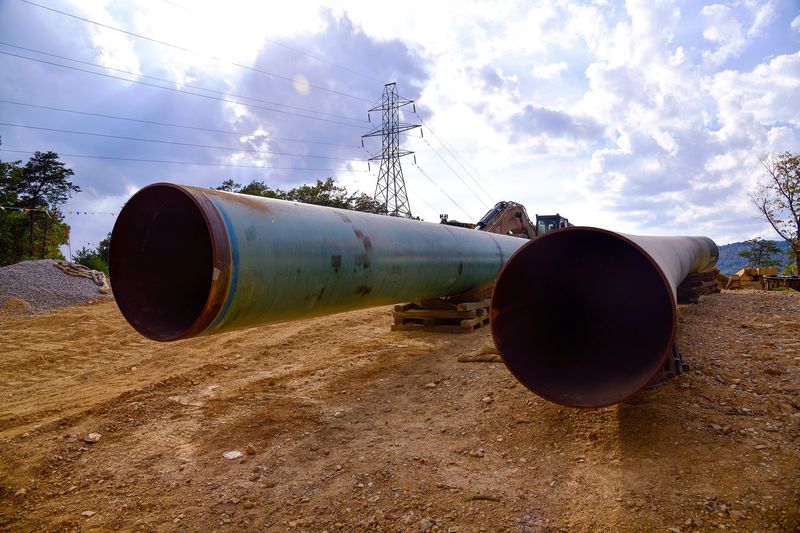(Reuters) - U.S. energy company Equitrans Midstream (NYSE:ETRN) on Tuesday said it still expects to complete the Mountain Valley natural gas pipeline by the end of the year despite being tangled in numerous court fights since construction began in 2018.
The U.S. Supreme Court last week on Thursday removed an obstacle to completing the estimated $6.6 billion pipeline that runs from West Virginia to Virginia, one of several projects delayed by regulatory and legal fights with environmental and local groups in recent years.
Mountain Valley is key to unlocking gas supplies from Appalachia, the nation's biggest shale gas-producing basin in Pennsylvania, Ohio and West Virginia.
In a sign of just how difficult it has been to build fossil-fuel infrastructure in the U.S. Northeast, where gas output has slowed in recent years, Mountain Valley needed a bill from the U.S. Congress that was signed into law by the president and help from the Supreme Court before it could restart construction.
The need for so much government assistance to keep Mountain Valley going "only magnifies the critical need for comprehensive permitting reform" to improve the process of building new infrastructure, Equitrans CEO Thomas Karam said in the company's second quarter earnings release.
When Mountain Valley started construction in February 2018, Equitrans estimated the 2.0-billion cubic feet per day project would cost about $3.5 billion and enter service by late 2018.

After hitting an 18-month high on Monday, Equitrans stock slid about 4% to $10.00 per share on Tuesday after the company's earnings missed analysts' estimates.
The 303-mile (488-kilometer) Mountain Valley project is owned by units of Equitrans, the lead partner building the pipe with a roughly 48.3% interest, NextEra Energy (NYSE:NEE), Consolidated Edison (NYSE:ED), AltaGas (TSX:ALA) and RGC Resources.